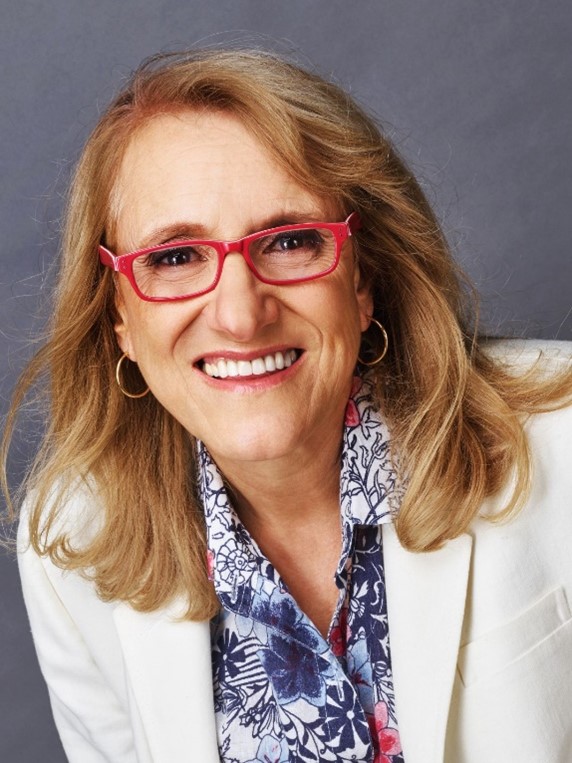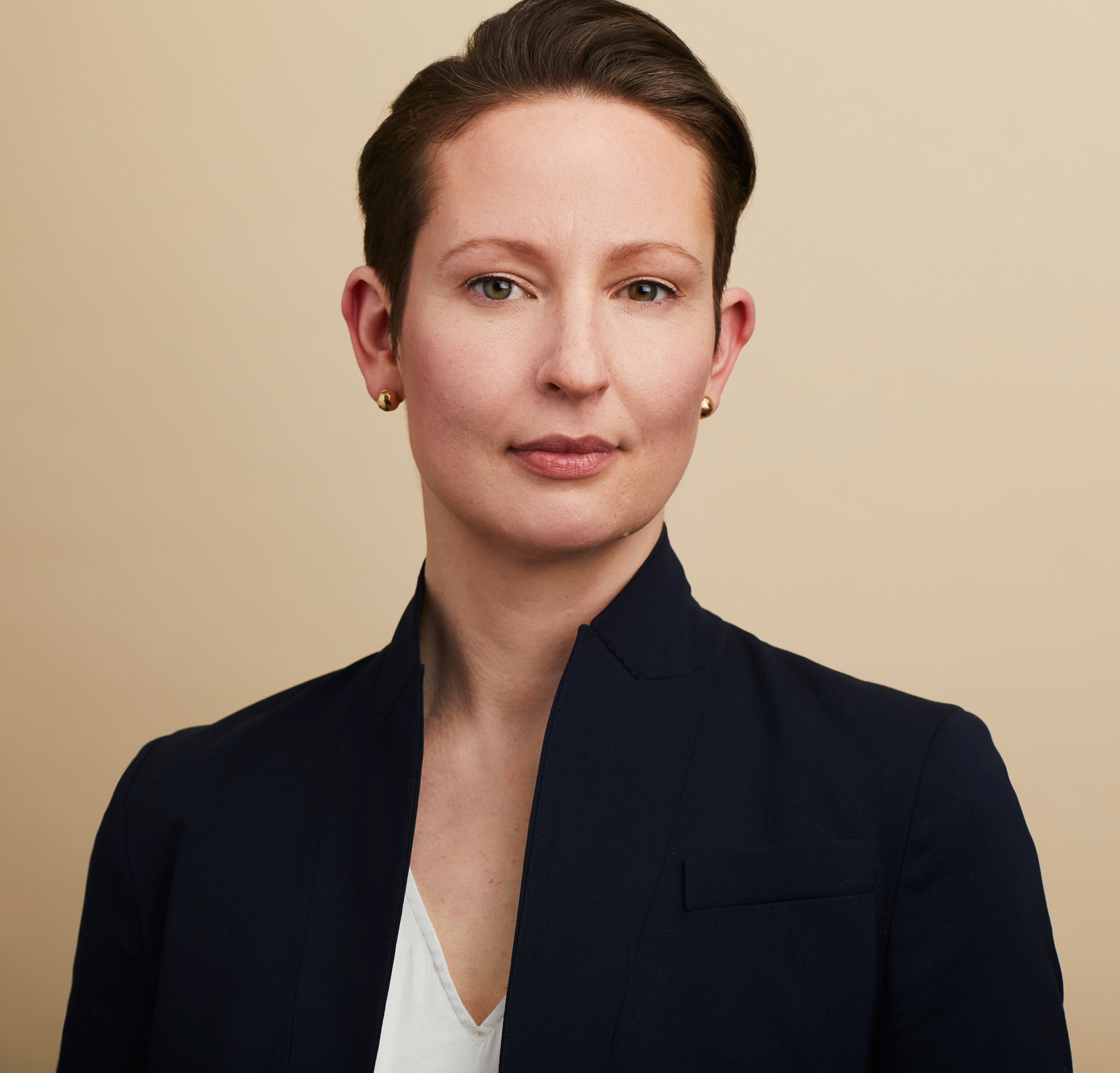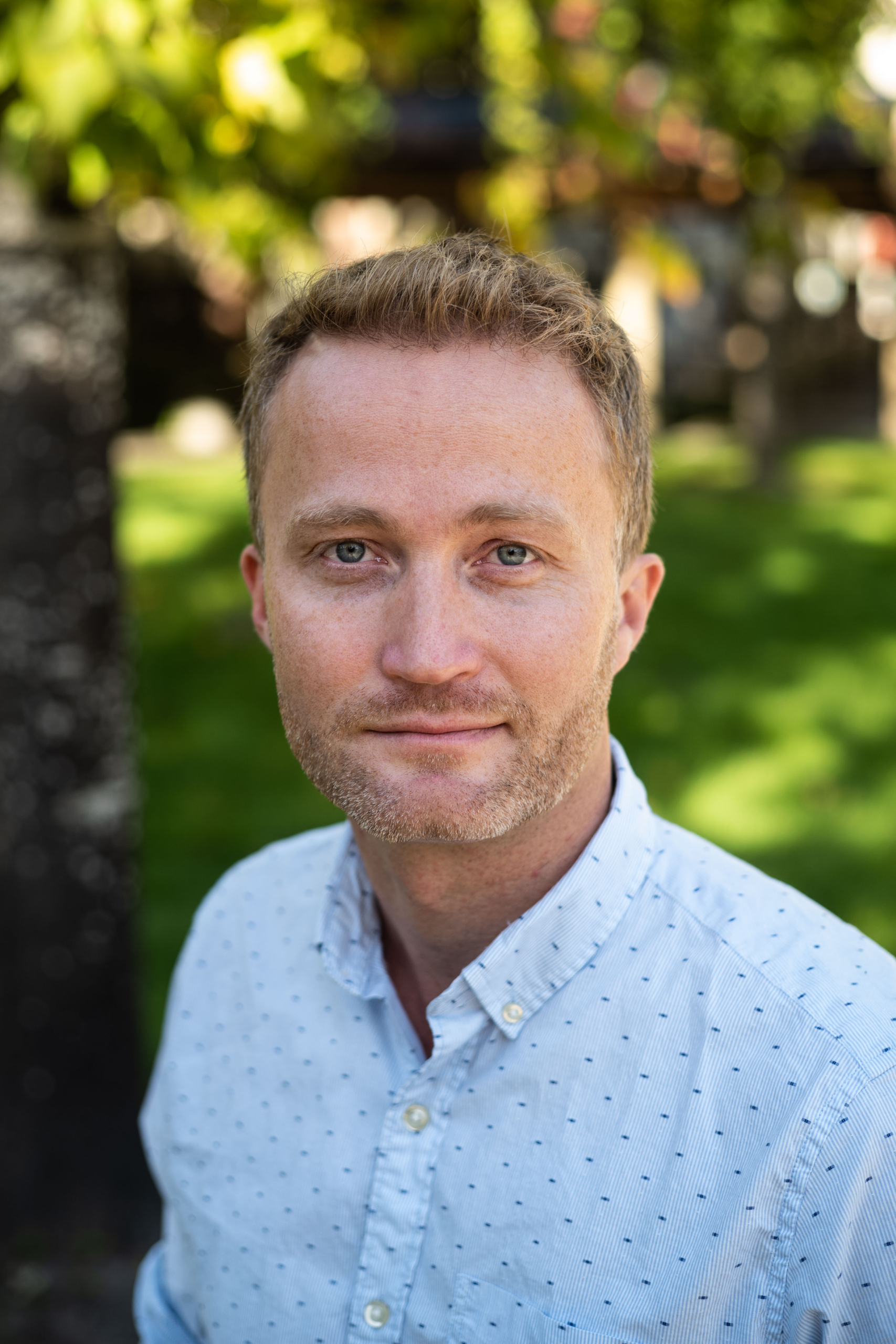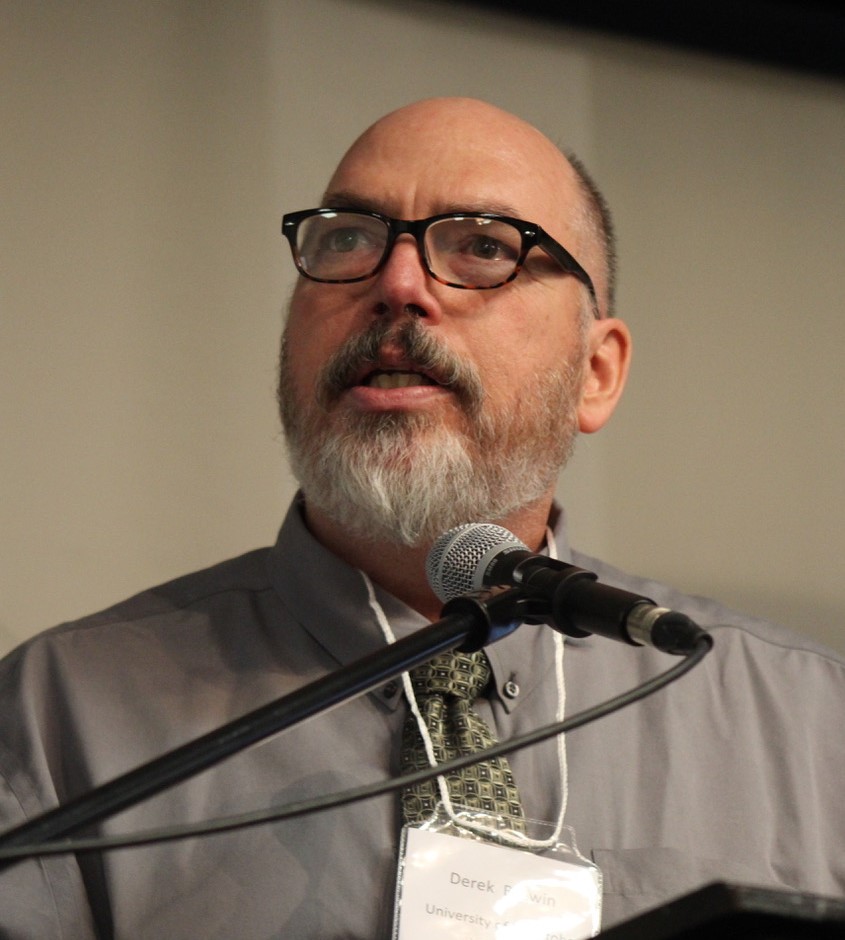SPEAKERS AND CHAIRS | BIOGRAPHIES DES CONFÉRENCIERS

Kara Beckles
Kara Beckles is Director General of Data Integration at the Privy Council Office, a position she recently took on during the summer of 2020. Kara previously held several positions at Agriculture and Agri-Food Canada (AAFC), most recently as Director General of the Economic Research and Analysis Directorate (RAD) and Chief Data Officer. Kara first joined AAFC in 2007 as a Regulatory Policy Analyst, then as Chief of Bioeconomy Policy, where she developed broad, collaborative departmental strategies. She joined RAD in 2014 when she took on the position of Director, Economic and Industry Analysis where she re-discovered her academic roots in economics before becoming Director General in 2017. Early in her career Kara held a wide range of policy roles across the Government of Canada, including: 5 years with Finance Canada working on immigration and homelessness issues; the negotiation of free trade agreements at the Department of Foreign Affairs and International Trade; as well as various roles at the Treasury Board Secretariat, the Privy Council Office, and Statistics Canada. Kara holds a Bachelor of Arts (Hons.) in economics and business from the University of Winnipeg and a Master of Arts from Dalhousie University.

Emmanuel Yiridoe
Emmanuel Yiridoe is Professor and also currently Associate Dean (Academic), Faculty of Agriculture, Dalhousie University. Dr. Yiridoe is also currently President of the Canadian Agricultural Economics Society, and a Board Member/Director, Atlantic Canada Economics Association (2015 – present). He is a current member of the Farm Practices Board, Government of Nova Scotia. In June 2017, he concluded a term as Chair of the Department of Business & Social Sciences, Dalhousie University. In addition, he served a term on Dalhousie University Senate. He was a visiting Teaching Professor at Fujian Agricultural and Forestry University, Fuzhou, China in May 2019. His recent research is varied, and include studies about the economics of precision agriculture (mechanization and automation), renewable energy systems, and impacts of carbon tax on returns to farmers. Dr. Yiridoe has published in leading academic journals such as Energy Policy, Energy, Social Science and Medicine, Environmental and Resource Economics, Canadian Journal of Agricultural Economics, Agricultural Economics, and Agribusiness.

Chris Forbes
Chris Forbes was appointed Deputy Minister of Agriculture and Agri-Food Canada in May 2017.
Prior to re-joining AAFC, Chris was Associate Deputy Minister at Finance Canada from November 2016 to May 2017. In that role, he was responsible for providing advice on a wide range of economic, social, and fiscal policies.
Chris was Associate Deputy Minister of Agriculture and Agri-Food Canada from January 2015 to November 2016.
Chris was an Assistant Deputy Minister at Environment Canada from 2013 to 2015, focusing on environmental policies and regional programs, and he worked at the Department of Finance for a decade, in the areas of tax policy, social policy and federal-provincial relations.
Before joining the federal government, Chris worked for the Government of the Northwest Territories and the Toronto Dominion Bank. He holds a Masters in Economics from McGill University.

Warren Goodlet
Director General, Research and Analysis Directorate
Strategic Policy Branch
Agriculture and Agri-Food Canada
Warren Goodlet joined Agriculture and Agri-Food Canada (AAFC) in 2020 as the Director General of the Research and Analysis Directorate. He leads a team that provides economic analysis, information, and forecasts related to the domestic and international agriculture and agri-food sectors, including economic and social trends, and the structure and performance of the Canadian agriculture and agri-food sector.
Prior to joining AAFC he worked at Environment and Climate Change Canada from 2009 to 2020 on a number of regulatory initiatives addressing air pollutants and greenhouse gas emissions, as well as spending over a year in the Deputy Minister’s Office as a policy advisor.
He also spent five years in the Economic Analysis Directorate as a Director, Executive Director, and Acting Director General, overseeing teams of economists and policy analysts to provide economic analysis and advice on the design and competitiveness implications of environmental policies. His team led the development of Canada’s Mid-Century Climate Change Strategy and its estimate of the Social Cost of Carbon and advanced the issue of Sustainable Finance. Most recently he led on the department’s work looking at a green economic recovery.
Warren has also worked at Finance Canada as an economist on climate change files and spent two years as a public school teacher. He holds a BSc in Biological Science and an MA in Economics from the University of Guelph, as well as a BEd from St. Thomas University.

Alan Ker
After obtaining his joint PhD in Economics and Statistics at North Carolina State University (09-92 to 03-96), Alan worked as a professor (and subsequently Head from 2002-07 in the Department of Agricultural and Resource Economics at the University of Arizona. In April 2009, Alan moved to Canada where he joined the Department of Food, Agricultural and Resource Economics in his new position as Chair and Professor. In September 2014, Alan concluded his 5-year term and became Director of the Institute for the Advanced Study of Food and Agricultural Policy. The Institute attracts and supports students in the area of food and agricultural economics, hosts conferences, publishes FAREShare (newsletter) and supports FARETalk (podcast). Alan served as 2016-17 President of the Canadian Agricultural Economics Society and sits on the editorial boards of the Canadian Journal of Agricultural Economics and the European Review of Agricultural Economics. In 2019, he became the OAC Research Chair in Agricultural Risk and Policy. Also in 2019, he became Managing Editor of the Canadian Journal of Agricultural Economics. Alan has testified before the House of Commons Standing Committee on Agriculture and Agri-Food. Alan spent 2016 fall term visiting Sapienza University (Rome) and 2017 winter term visiting University of Queensland (Brisbane). Alan has organized both national and provincial conferences on issues of current policy relevance to the Canadian agricultural and food sectors. His interests are varied having published in leading academic journals ranging from agricultural economics, economics, statistics, probability, law, animal science, and plant science. Current research involves the link between climate change, innovation, and yield volatilities, issues related to risk management and crop insurance, and developing methodologies that borrow information from like dgps to increase small sample efficiency of nonparametric estimators. Alan and his students have been consistently recognized with national awards of excellence for their research.

Tom Rosser
Mr. Tom Rosser joined Agriculture and Agri-Food Canada (AAFC) as the Assistant Deputy Minister of Strategic Policy in January 2017. He is responsible for leading on major policy issues on behalf of the Department including Cabinet and intergovernmental affairs, implementing the Food Policy for Canada, as well as economic analysis.
Before joining AAFC, he was the Senior Assistant Deputy Minister of Strategic Policy at Fisheries and Oceans Canada, responsible for policy development, Cabinet and Parliamentary Affairs, communications, economic analysis and trade. Prior to that, he was the Assistant Deputy Minister, Canadian Forest Service (CFS), Natural Resources Canada (NRCan).
Earlier in his career, Tom held a number of positions in both the public and private sectors related to economic and public policy analysis in natural resource sectors. This included assignments at NRCan, Industry Canada and the Forest Products Association of Canada.
A British Chevening Scholar, Tom holds a Master of Science in Environmental and Resource Economics from the University of London as well as Masters and Bachelor’s degrees in Public Administration from Carleton University in Ottawa.

Annette Hester
Annette Hester heads TheHesterView Inc. and focuses on making data more approachable and effective. Her projects reflect her innovative approach in bringing together experts in their field to form teams that work together to deliver excellence in data structuring and in data visualization. Her work is notable for the quality of the design.
Ms. Hester brings decades of experience to her advisory and strategic policy services. She is a member of the Canadian Statistics Advisory Council. She has recently co-ordinated the development/creation of several new leading-edge data visualizations for the Canada Energy Regulator, which have already proved their worth in public forums. Prior to that, she co-ordinated a four-year project to develop an interactive data-rich website detailing the energy activities of Latin America and other member countries for the Inter-American Development Bank in Washington DC.
In 2012, she served as a senior strategic advisor to the Deputy Minister of the executive council and the Premier Policy Director in the Government of Alberta, Canada.
Ms. Hester has a master’s degree in economics, and was the founding director of the Latin American Research Centre at the University of Calgary. She has extensive experience as a data and energy sector consultant for leading companies, governments, and multilateral institutions in several countries of the Americas.
Throughout her career she has written for a variety of multilateral institutions, academic publications and think-tanks. She was a frequent contributor to Oxford Analytica and has authored numerous articles in policy and energy journals.

Bianca Wiley
Bianca is an open government advocate with a dual background in technology and public engagement. She is the co-founder of Tech Reset Canada, the co-founder of Digital Public, and a senior fellow at the Centre for International Governance Innovation. She worked for several years in the tech sector in operations, infrastructure, corporate training, and product management. Then, as a professional facilitator, she spent several years designing, delivering and supporting public consultation processes for various governments and government agencies. She founded the Open Data Institute Toronto in 2014 and co-founded Civic Tech Toronto in 2015. She is a columnist, guest lecturer, and speaker on open government and public sector technology policy and is on the advisory board of The Computational Democracy Project. You can find her on Twitter @biancawylie

Karen Hand
Dr. Karen Hand has invested many years as a visionary consultant and researcher in the application of data science as applied to the Canadian Agri-Food Industry. With a focus on digital transformation strategies in agri-food and complex data ecosystems, Karen seeks to enable farm driven data architectures for trustworthy data sharing and interoperability with standards such as GS1, enabling farmers and their trusted organizations partnership opportunities in the digitization of food systems. Karen is a member of the Trust over IP Foundation and Chair of the Ecosystem Foundry White Paper Task Force.

Kirsten Nicole Smith
Kirsten Nicole Smith is a Research Associate at the Center on Global Energy Policy at Columbia University with research interests broadly covering electricity markets, clean energy investment and policy interventions to decarbonize the energy sector. Her previous research has largely focused on the impact of climate regulation on the profitability of energy development and capital investment decisions. She is recognized in the Canadian economic community for her data visualization commentary and has published her work in Maclean’s and Alberta Oil magazines.
Kirsten has worked at the intersection of energy and climate change policy for nine years across the government, academia, and the private sector. Prior to joining CGEP, Kirsten spent three years in Tokyo, Japan at the Asia Pacific Energy Research Centre (APERC) as a visiting researcher representing Canada. In this role she led the energy investment and climate change policy research as part of the flagship APEC Energy Demand and Supply Outlook, and travelled extensively to disseminate APERC’s research internationally across the 21 APEC economies. While in roles at the Alberta Department of Energy and Environment Canada, Kirsten’s research and analysis was integral to the development of carbon policies for the energy sector at both the provincial and federal level.
Kirsten holds a Master of Public Affairs from the University of Texas at Austin, a Bachelor of Commerce in finance from the University of Alberta, and a Bachelor of Arts in economics and political science from the University of Alberta. During university, she worked as a graduate research assistant for Dr. Varun Rai primarily on scaling community solar in ERCOT, and as a research assistant to Dr. Andrew Leach focusing on oil sands economic analysis.

Ryan Hum
Ryan Hum is the Chief Information Officer and Vice President of Data and Information Management at the Canada Energy Regulator.
Ryan’s previous post was with Immigration, Refugee and Citizenship Canada, where he was Director of Service Insights and Experimentation, responsible for designing and implementing service improvements for people seeking refuge, immigrating, and becoming citizens of Canada.
Ryan has had a long and distinguished career in public service in the departments of Health, the Food Inspection Agency, and Natural Resources, where he was Acting Director of Sustainable Mining Policy, Intergovernmental Affairs and Environmental Assessments.
He was also a founding member of the Government of Canada’s Central Innovation Hub (housed at the Privy Council Office), where he served as Chief Designer and Data Scientist leading the design insights and data analytics practice to improve policy, program and service delivery.
Ryan has Bachelor of Science (Honours) and a Bachelor of Chemical Engineering from Queen’s University, a Master’s of Engineering Design from McMaster University and is working toward a PhD in Chemical Engineering from the University of Toronto. He is also an Adjunct Professor at the Ontario College of Art and Design University (OCAD) and has previously taught design, public policy and engineering at Carleton University and the University of Toronto.

Tyler Whale
Tyler Whale has deep experience in the agriculture sector, academia, technology commercialization, entrepreneurship and network development. Being raised on a 7th generation dairy farm ignited his passion for the ag-sector and after earning his PhD from the Vaccine and Infectious Disease Organization in 2005 and an MBA in 2007 and founding 2 different companies, he has worked for a variety of organizations including Johns Hopkins University, The Saskatoon Colostrum Company, the University of Guelph and most recently as the President of Ontario Agri-Food Technologies. At OAFT, his role is to optimize the potential of innovative ventures with a focus on food and agri-tech and to help coordinate and launch new initiatives that will benefit the overall sector. As a catalyst for change, Tyler enjoys explaining the benefits of new opportunities, providing stakeholders with the information needed to make sound judgements and encourages progress through a commercial and technology based lens.

Rachel Samson
Rachel Samson has worked on climate change policy, and the intersection of environmental and economic policy, for over 20 years. Rachel has experience at various federal government departments, including as an economist at Finance Canada and as Director of Current Analysis and Economic Research at Environment and Climate Change Canada. Between 2014 and 2019, Rachel worked as a consultant, undertaking research, analysis, policy advice and report writing for clients such as the Organisation for Economic Cooperation and Development (OECD). Rachel holds a Master’s degree in economics from Queen’s University, with a specialization in environmental economics.

Jason Lusk
Jayson Lusk is Distinguished Professor and Head of the Agricultural Economics Department at Purdue University. He earned a BS in Food Technology from Texas Tech and a PhD in Agricultural Economics from Kansas State. He held previous appointments at Mississippi State and Oklahoma State Universities and the French National Institute for Agricultural Research. He serves on the executive committee of the USDA National Agricultural Research, Extension, Education, and Economics (NAREEE) Advisory Board.
Lusk is a food and agricultural economist who studies what we eat and why we eat it. He has been interviewed and published editorials in outlets such as the New York Times, Wall Street Journal, USA Today, and the Washington Post, and has appeared on numerous network and national cable television shows. Lusk has published more than 250 articles in peer reviewed journals, including several of the most cited papers in the agricultural economics profession. He has authored five books, the latest being Unnaturally Delicious. Lusk has received numerous awards including the Borlaug Communication Award from the Council for Agricultural Science and Technology and the Lou Ann Aday award, Purdue University’s most prestigious research award in the humanities and social sciences. He is a fellow and past president of the Agricultural and Applied Economics Association.

Mike von Massow
Mike von Massow is an Associate Professor in the Department of Food, Agricultural, and Resource Economics at the University of Guelph and the OAC Chair in Food Systems Leadership. Mike is interested in how people think about food with recent work focusing on labeling, novel food products, animal welfare and antibiotic use. He is also active in the interdisciplinary Guelph Food Waste Research Project with Dr Kate Parizeau. Mike’s research also considers the structure and performance of food value chains as they evolve in response to changing consumer preferences and other factors. Mike has written for the Globe and Mail and other publications and is often quoted on radio and in the media. As a frequent blogger with a strong presence on broadcast, print and social media in a manner that helps to inform public policy and private strategy. Mike has also introduced his FoodFocus Podcast to discuss issues of interest in the food space.

Philip Houlding
Director International Policy
New Zealand Ministry for Primary Industries
Phil Houlding is the Director of International Policy at the New Zealand Ministry for Primary Industries. As Director of International Policy, he leads teams focussed on trade policy (including international standards setting bodies), environment negotiations, international fisheries issues and New Zealand’s international primary sector relationships.
Prior to taking up his current role in February 2019, Phil was Trade and Economic Counsellor at the New Zealand Embassy in Washington, DC. He was responsible for leading the Embassy’s advocacy efforts in Washington on trade, environment and economic issues, including the Trans-Pacific Partnership.
Before his assignment in Washington, he was the Trade and Economic Manager for the Meat Industry Association of New Zealand, representing processors and exporters of beef and lamb with a particular focus on political advocacy and market access. Before that, Phil spent 8 years with the Ministry of Foreign Affairs and Trade, principally working on trade policy, including leading market access negotiations in trade negotiations with Korea, India and in the Regional Comprehensive Economic Partnership (RCEP). He had other roles in the Ministry of Foreign Affairs and Trade’s Economic and APEC divisions.
Offshore, Phil was posted to the New Zealand Embassy in Jakarta, Indonesia for three years, where he led work on trade and environmental policy, including Indonesia’s ratification of the ASEAN/Australia/New Zealand free trade agreement.
Phil holds a First Class Master’s degree in English literature, a BA in German and a BSc. in Applied Mathematics from the University of Auckland.

Alain Beaudoin
Assistant Secretary to the Cabinet, Results and Delivery
Privy Council Office
In January 2018, Alain returned to the Privy Council Office (PCO) as Assistant Secretary to the Cabinet, Results and Delivery.
Prior to returning to the PCO, Alain joined FedDev Ontario in June 2014 as the Vice-President, Policy, Partnerships and Performance Management, where he also assumed the role of Vice-President, Business, Innovation and Community Development from April 2015 to May 2016.
Alain has had a varied career with the federal government beginning with a series of increasingly senior roles at the Privy Council Office (Intergovernmental Affairs), before joining Health Canada. He also worked in the Prime Minister’s Office and joined Industry Canada in 2003 as Senior Director, Policy (Industry Sector).
Starting in 2005, Alain has held a number of positions at the Director General level at Industry Canada, notably with the Innovation Partnership Branch, the Security and Prosperity Partnership Secretariat, the Communications and Marketing Branch, and the Information and Communications Technologies Branch. Alain was also the Acting Assistant Deputy Minister of Spectrum, Information Technologies and Telecommunications (SITT) from October 2012 until July 2013.
Alain holds a Master’s and Bachelor’s degree in Arts & Sciences (Political Science) from the Université de Montréal.

Brady Deaton
Professor Deaton is Professor and McCain Family Chair in Food Security in the Department of Food, Agricultural and Resource Economics at the University of Guelph. His research focuses on the allocation of resources, within society, and the subsequent consequences for food security, economic development and environmental quality. Property rights and ownership of natural resources figure prominently in his research and teaching efforts.

Ryan Cardwell
Ryan Cardwell is a professor in the Department of Agribusiness & Agricultural Economics at the University of Manitoba. Ryan is president of the Canadian Council of the International Association of Agricultural Economists and is a member of the editorial board for the Canadian Journal of Agricultural Economics.
Ryan worked at a private-sector economic forecasting firm in Philadelphia (Moody’s Analytics/Economy.com) for three years after completing a MA in economics at the University of British Columbia. He then earned a PhD in agricultural economics from the University of Saskatchewan before moving to Winnipeg.
Ryan’s research interests include international trade regulation and foreign aid, with a focus on international food aid. Current research topics include perceptions of agricultural policies, the effects of tariff barriers on food assistance, and international food aid policies. His recent article on Canadian food assistance policies was lead article in the American Journal of Agricultural Economics. Ryan teaches courses on the economics of food and agricultural policies to diploma, degree, and graduate students.

Andrew Davidson
Dr. Andrew Davidson is the Manager of Earth Observation Operations in AAFC’s AgroClimate, Geomatics and Earth Observation Division (ACGEO), the Division responsible for the operationalization of AAFC’s geospatial research. He is also an Adjunct Research Professor in the Department of Geography and Environmental Studies and an Affiliated Researcher with the university’s Global Water Institute. Andrew’s work focuses on the research, applications development and operational implementation of satellite-based observing systems for monitoring Canada’s agricultural resources. Internationally, Andrew co-leads the Group on Earth Observation Global Agricultural Monitoring (GEOGLAM) Joint Experiment for Crop Assessment and Monitoring (JECAM), is a member of the GEOGLAM Executive Committee, and is Canada’s alternate representative on the GEO Programme Board. Andrew actively supports Canada’s remote sensing community through his involvement with various remote sensing organizations. He was previously a member of the National Executive Committee of the Canadian Remote Sensing Society. In November 2013, Andrew was elected to the College of Fellows of the Royal Canadian Geographic Society.

Joseph W. Glauber
Joe Glauber is a Senior Research Fellow at the International Food Policy Research Institute in Washington, DC where his areas of interest are price volatility, global grain reserves, crop insurance and trade. Prior to joining IFPRI, Glauber spent over 30 years at the U.S. Department of Agriculture including as Chief Economist from 2008 to 2014. As Chief Economist, he was responsible for the Department’s agricultural forecasts and projections, oversaw climate, energy and regulatory issues, and served as Chairman of the Board of Directors of the Federal Crop Insurance Corporation.
From 2007-2009, Glauber was the Special Doha Agricultural Envoy at the office of the U.S. Trade Representative where he served as chief agricultural negotiator in the Doha talks. He served as economic adviser at the so-called Blair House agreements leading to the completion of the Uruguay Round negotiations and was senior economist for agriculture at the President’s Council of Economic Advisers. He is the author of numerous studies on crop insurance, agricultural policy, and agricultural trade issues.
Dr. Glauber received his Ph.D. in agricultural economics from the University of Wisconsin in 1984 and holds an AB in anthropology from the University of Chicago. In 2012, he was elected Fellow of the Agricultural and Applied Economics Association.

Aaron De Laporte
In his role as Senior Research Associate in the Department of Food, Agricultural and Resource Economics at the University of Guelph, Aaron De Laporte examines the economic and environmental tradeoffs of innovative agricultural BMP adoption using spatial bioeconomic and transportation modelling. He has examined wetland management throughout Canada and biomass-based bioenergy in Ontario and North Dakota. His current research focuses on 4R nitrogen management, precision agriculture, cover crops and genomic technologies. He received his Ph.D. from the University of Guelph.”

Getu Hailu
Getu Hailu is a Professor in the Department of Food, Agricultural and Resource Economics (FARE) at the University of Guelph. Getu started his career in Ethiopia working with small farmers on farm management strategies under an uncertain environment. He graduated with a Ph.D. degree from the University of Alberta with a major in Agricultural and Resource Economics. He joined the University of Guelph in 2005. Getu has worked across multiple stages of agri-food supply chains in both developing and developed countries, with different levels of government and industries. With productivity and competitiveness as his core expertise, he has built and executed a strong research program at the University of Guelph.

Patrick Lloyd-Smith
Patrick Lloyd-Smith is an Assistant Professor in water and resource economics with the Agricultural and Resource Economics Department at the University of Saskatchewan. He is also a member of the interdisciplinary Global Institute for Water Security (GIWS) and the Global Water Futures research programme where he contributes his economics expertise into ongoing work modelling Canada’s water future. His research focuses on non-market valuation, water resource economics, and modelling and understanding consumer behaviour. He obtained his PhD at the University of Alberta in 2018. Before returning to academia, Pat worked for several years as a consultant conducting economic analyses working with municipal, provincial, and federal governments in Canada as well as the World Bank.

Lee Ann Jackson
Dr. Lee Ann Jackson is the Head of the Agro-Food Trade and Markets Division in the Trade and Agriculture Directorate (TAD) at the OECD. Dr Jackson manages a team that works to develop and communicate evidence-based advice to governments with the aim of helping them improve the domestic and international performance of their policies for agro-food trade and markets.
Dr Jackson joined the OECD in 2020 after 16 years at the WTO where her most recent position was as Counselor of Food and Agricultural Policy Research in the Economic Research and Statistics Division. At the WTO, she also served as the Secretary to the WTO’s Committee on Agriculture in the Agriculture and Commodities Division where her responsibilities included the implementation and monitoring of WTO rules on agriculture and multilateral agriculture negotiations. Prior to the WTO, Dr. Jackson held various research roles including as a Research Fellow in the School of Economics at the University of Adelaide in South Australia and a researcher in the Environment Division of the International Food Policy Research Institute in Washington DC.
Dr. Jackson completed her Ph.D. in applied economics at the University of Minnesota; has joint Master’s degrees in public and private management and environmental studies from Yale University.

Lindsay Boldt
Lindsay assumed the role of Director of Market Development, in the International Affairs Branch at Agriculture and Agri-Food Canada (AAFC), in January 2019. Working closely with federal, provincial and industry partners, her division leads market development efforts on behalf of AAFC to promote Canada’s safe, high quality food and agricultural products in international markets. Lindsay first joined AAFC in 2016 as the Deputy Director of the Strategic Integration team, where she was responsible for horizontal policy development and coordination of initiatives such as federal budget proposals, Ministerial mandate letter commitments, Agri-Food Economic Strategy Table, and Indigenous agriculture.
Prior to joining AAFC, Lindsay was a senior advisor at Treasury Board Secretariat where she provided analysis and advice on Treasury Board submissions, fiscal reduction proposals and expenditure management initiatives. Lindsay began her career in the federal public service as a policy analyst in the International Programs Division of Health Canada’s Health Products and Food Branch. She holds a Bachelor of Science (Hons.) from Queen’s University and a Masters of Public Administration from Dalhousie University.

Carla St. Croix
With a career in the public service spanning over 20 years, Carla St. Croix was appointed to the position of Executive Director, Strategic Integration and Competitiveness Policy, Strategic Policy Branch, Agriculture and Agri-Food Canada (AAFC) in March, 2019. In this capacity, Carla is responsible for overall strategic integration functions, including providing direction and leadership pertaining to AAFC intergovernmental affairs, directing medium-term analysis and providing strategic advice and recommendations related to future agricultural policy frameworks including analysis of Business Risk Management in supporting the needs of the agriculture and agri-food sector. Additionally, she provides support and advice in preparing the department and Minister in carrying out Cabinet responsibilities, and works to ensure coordination and the advancement of policy perspectives across all dimensions of AAFC’s mandate responsibilities.
Prior to being appointed to this position, Carla occupied the position of Director, Innovation and Growth Policy, Strategy Policy Branch where since March 2015, she designed, developed and delivered strategic advice related to innovation across the agriculture sector and provided authoritative advice concerning these policies and their impacts to the Deputy Minister and senior executives of AAFC.
Since July 2014, Carla occupied the position of Chief, Bioeconomy Policy, within the Innovation and Growth Policy Division, and prior to that, Carla was the Senior Advisor to the Director General of Cross-Sectoral and Strategic Direction, Science and Technology Branch. Carla holds a Bachelor of Arts degree in Political Science from Brandon University as well as a Master of Arts degree in Political Science from Carleton University.

Dr. Jason H. Grant
Dr. Jason Grant is Associate Professor and Director of the Center for Agricultural Trade at Virginia Tech. His research investigates the impacts of trade disputes, retaliatory trade measures, competitive regionalism, and non-tariff measures. In 2019, he served as guest editor of Choices, leading a team of policymakers and academics to conduct a one-year assessment of the economic impacts of the 2018/19 trade disputes and retaliatory trade actions impacting U.S. agricultural markets. In 2020, he received USDA’s Bruce Gardner Award for outstanding contributions by an outside Economist and has previously been the recipient of the American Agricultural and Applied Economics Association’s Honorable Mention award for Outstanding Journal Article and the European Agricultural Economics Association’s Quality of Policy Contribution Award for his work on international trade agreements.

Ellen Goddard
Ellen Goddard is Cooperative Chair in Agricultural Marketing and Business, University of Alberta, since December 2000. Prior to that she was National Australia Bank Professor of Agribusiness and Associate Dean, Coursework, at the Institute of Land and Food Resources at the University of Melbourne and Professor at the University of Guelph. Beyond the study of co-operatives, her current research includes various aspects of food purchasing behaviour including consumer response to food safety, consumer interest in technology, in labels, consumer demand for credence attributes, traceability and certification. She works as a core social science researcher (GE3LS lead) in six large livestock genomics projects (Genome Canada) –on identifying genes related to animal disease resilience, on identifying genes related to feed efficiency and on identifying and undertaking surveillance for animal disease. Ellen has recently served on the Alberta Local Food Council, on the Council of Canadian Academies Expert Panel on the Potential Socio-Economic Impact of Antimicrobial Resistance in Canada and on the National Steering Committee for Public Trust in Agriculture. She is a Fellow of the Canadian Agricultural Economics Society and a Distinguished Fellow of the Australasian Agricultural and Resource Economics Society.

Danielle Roy
Danielle is a current MSc student in the Department of Food, Agricultural and Resource Economics (FARE) at the University of Guelph. She currently works as a graduate research assistant at the University of Guelph’s FARE laboratory for Experimental and Applied Economics. Her current thesis work experimentally investigates the factors which influence adoption of technology which can reduce water pollution from agriculture. Her research interests include environmental and agricultural policy analysis, natural resource management, and experimental economics.
Dr. Tongzhe Li
Dr. Tongzhe Li is an assistant professor at the Department of Food, Agricultural and Resource Economics, University of Guelph and the founding director of FARE Laboratory for Experimental and Applied Economics. She earned a Ph.D. in Economics from Washington State University in 2015. Li investigates the status quo of economic behaviour and then uses Experimental and Behavioral Economics techniques to draw causal inferences on how various treatments change the tipping point of public choices. Her work has been funded by multiple agencies in Canada and the U.S., including Genome Canada, OMAFRA, National Science Foundation, National Oceanic Atmospheric Administration, and U.S. Department of Agriculture. Dr. Li has published 28 peer-reviewed articles in the past five years. She is a recipient of the 2017 Sylvia Lane Mentor Fellowship, a competitive, international award for young female agricultural and resource economists.

Sarah Sijses
Sarah is currently working as Senior Policy Advisor at the Dutch Ministry of Agriculture, Nature and Food Quality, where she forms part of a small core team that coordinates the execution of climate mitigation measures in the agriculture and land use sectors. She has an academic background in agricultural development economics and has 13 years work experience in the fields of climate change mitigation and -adaptation, sustainability, food- and nutrition security, development cooperation and international trade and -investment. Prior to her current position she has worked at the Dutch Embassy in Indonesia, UN World Food Programme, Netherlands Enterprise Agency, Erasmus School of Economics and DG Trade of the European Commission. She has worked and lived in Indonesia for six years and has travelled extensively to China and Russia during her position as Project Officer. She is experienced in working both at a strategic- as well as implementation level and using this experience for mutual strengthening. During her working career she has dealt with Ministers and smallholder farmers and everything in between.

Scott Biden
Scott Biden is a Sr. Research Associate with the Institute for the Advanced Study of Food and Agricultural Policy in the Department of Food, Agricultural and Resource Economics at the University of Guelph. He is also the Editorial Coordinator with the Canadian Journal of Agricultural Economics/Revue canadienne d’agroeconomie. Scott’s research is focused on building and maintaining a series of interregional, economic trade models of key agricultural industries to assess ‘what if’ type policy questions through price and quantity impacts along a vertically integrated supply chain. His previous research has focused on the intersection between biotechnology, policy, and the environment. Scott holds a Bachelor of Science in Economics and Germanic Studies from the University of Victoria and a Master of Science in Agricultural Economics from the University of Saskatchewan.

Scott McFatridge
Scott McFatridge is a senior research associate and program manager who leads the Clean Growth in Agriculture program line at the Smart Prosperity Institute. His research focuses on policies to enhance sustainability in agriculture and other working landscapes – including agri-environmental policies, payments for ecological services, carbon and biodiversity offsets, and voluntary ecological certification schemes. Prior to joining Smart Prosperity Institute, Scott worked as a research associate for the International Institute for Sustainable Development and the World Agroforestry Centre in Nairobi, Kenya. He has a Master’s degree in Public Administration from the School of Policy Studies at Queen’s University.

Rashadur Rahman
Rashadur Rahman is currently pursuing M.Sc. in Agricultural Economics at the University of Saskatchewan, Canada. He has completed his B.S.S (Hons.) degree in Economics from Khulna University, Bangladesh and Master’s in Environmental Economics from Dhaka School of Economics (University of Dhaka), Bangladesh. His research interests: environmental economics and policy, environmental valuation, natural resource governance and management, water governance, climate change vulnerability and adaptation, agricultural economics and sustainable development etc.

John Karl Pattison-Williams, PhD, PAg
Dr. John K. Pattison-Williams is a researcher with the Department of Resource Economics and Environmental Sociology at the University of Alberta, and president of Pattison Resource Consulting Ltd., a company specializing in the interaction between environmental conservation and economic development. His postdoctoral research at the University of Alberta has primarily focused on the CWD and how the disease has impacted various stakeholders across Canada. Together with his spouse Naomi and young son Micah, John is active on the mixed family grain and horse farm near Kingman, Alberta.

Nasim Amini
My name is Nasim Amini. I was a Research Assistant in the Department of Agricultural and Resource Economics at the University of Saskatchewan. I have completed my first Master’s degree in Economics with a focus on global warming from Science and Research University, Iran. I obtained my second Master’s degree in Agricultural Economics at the University of Saskatchewan, Canada. My current work is investigating the relationship between water quality and recreation demand.
My research interests: Water and resource economics, non-market valuation, agricultural economics, and consumer behavior.

Bruno Larue
Bruno Larue is a professor of agricultural economics at Laval University. He studied agricultural economics at McGill University where he obtained his B.Sc. in 1983 and at Iowa State University where he obtained a Ph.D in 1988. He was the Canada Research Chair in International agri-food trade at Laval University for 14 years and the founding director of the Center for Research on the economics of the Environment, Agri-food, Transports and Energy (CREATE) for 8 years. He has written over 100 scientific articles in the areas of international trade, agricultural policy, production economics and industrial organization and is a Fellow of the Canadian Agricultural Economics Society.

Daniel Schuurman
Daniel Schuurman is a current MSc Student in the Department of Food, Agriculture, and Resource Economics (FARE) at the University of Guelph under Alfons Weersink. He is currently a scholar with the CREATE Climate-Smart Soils program. His thesis work is on the value of soil health, crop management practices, and ecosystem service payments.

Derek Brewin
Derek Brewin is a Professor and Head of the Department of Agribusiness and Agricultural Economics at the University of Manitoba. He has a Ph.D. from Penn State University in Agricultural, Environmental and Regional Economics. His recent research has focused on spatial grain and oilseed markets as well as innovation in crops. He is an award winning teacher of agricultural marketing and risk management. Derek has served on numerous boards and committees. He is a Past President of the Canadian Agricultural Economics Society and a current Director of Farm Management Canada. He has served as a Senator at the University of Manitoba and as a director of the Manitoba Rural Adaptation Council. Prior to his academic career Derek was a Corporate Advisor for the CWB; a Policy Economist for AAFC and a farm lender with FCC. Derek was raised on a mixed irrigation farm in Purple Springs, Alberta.
